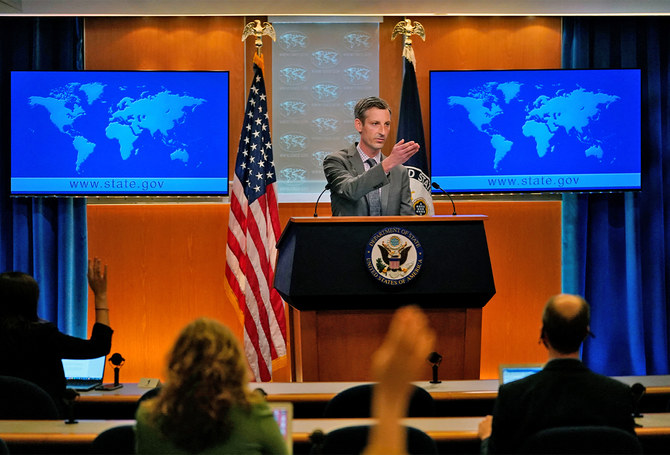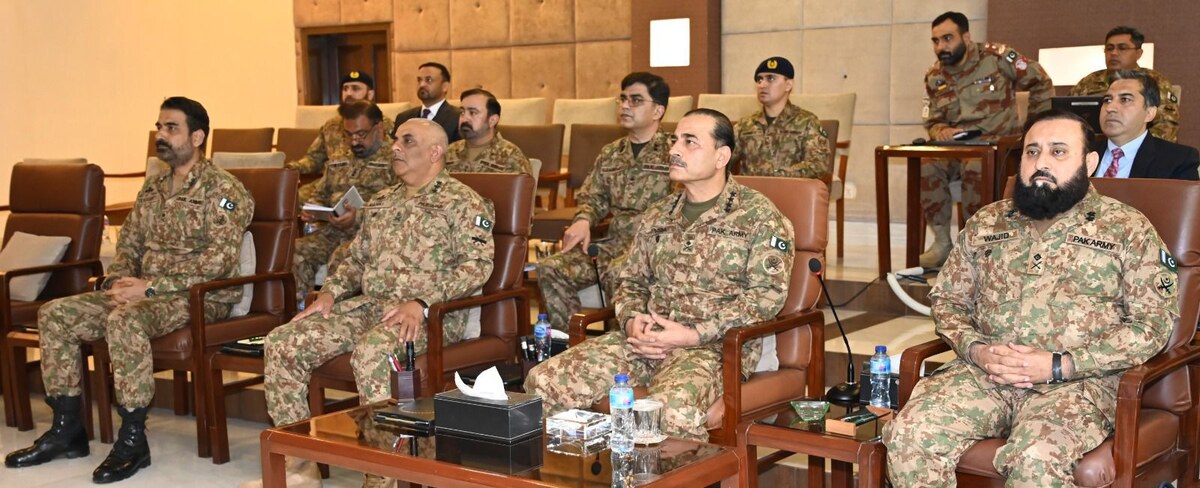ISLAMABAD: In separate briefings on Thursday, the US State Department and the White House said there was “no truth” to allegations by Prime Minister Imran Khan that the US had threatened the Pakistani government via a letter, hours after the premier doubled down on allegations of a foreign conspiracy against him in an address to the nation.
“Lettergate,” as the scandal has come to be called, began at a rally in Islamabad last Sunday where Khan spoke about a purported letter that contained threats to his government but did not name a country. Pakistani officials have since said the letter was a cable written by a former Pakistani ambassador to the United States, who conveyed threats by a “senior foreign official.”
In his address to the nation on Thursday night, Khan named the United States as he spoke of a conspiracy to topple his government by inciting a political campaign to remove him from office.
Khan is currently facing a no-confidence motion in parliament filed by the opposition, which will be put to vote on Sunday.
“Well, we are closely following developments in Pakistan, and we respect, we support Pakistan’s constitutional process and the rule of law,” state department spokesperson Ned Price said at a briefing. “But when it comes to those allegations [of the letter], there is no truth to them.”
In a separate briefing, when asked about Khan’s allegation that the US was “working with the opposition to remove him from power,” a White House spokeswoman said:
“There is absolutely no truth to that allegation.”
Khan chaired a meeting of his National Security Committee on Thursday afternoon, and announced after its conclusion that “a strong demarche [would be issued] to the country in question both in Islamabad and in the country’s capital through proper channel in keeping with diplomatic norms.”
“Participants also endorsed the Cabinet’s decision in the Special Cabinet meeting held on 30th March, 2022 under the Prime Minister’s chairmanship to take the parliament into confidence through an in-camera briefing of the National Security Committee of the Parliament,” the prime minister’s office said.
The foreign office subsequently said “the requisite demarches have been made through diplomatic channels.”
Khan’s ouster would likely mean another round of instability in the nuclear-armed South Asian country, in which the military has a long record of intervening in politics, though it denies this, and no prime minister has completed a full five-year term in its history.
The political crisis comes as the nation of 220 million people, the world’s second-largest Muslim country, struggles with double-digit inflation and dwindling foreign reserves. As dissatisfaction with Khan’s government grew over the past few months, particularly over economic challenges, his opponents announced their intention to move a no-confidence motion in parliament, which was tabled this Monday.
Two coalition partners of Khan have abandoned him since, technically giving the opposition the votes needed to oust him from office.























